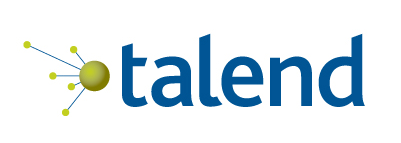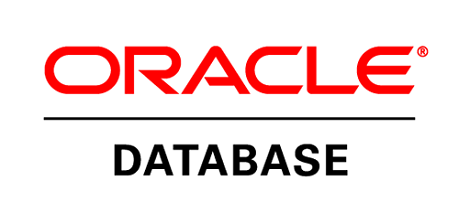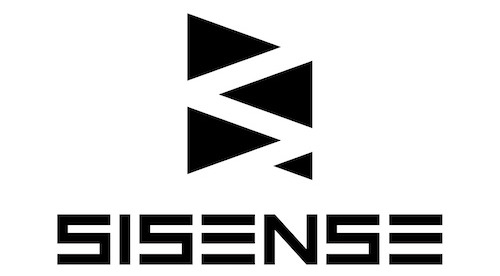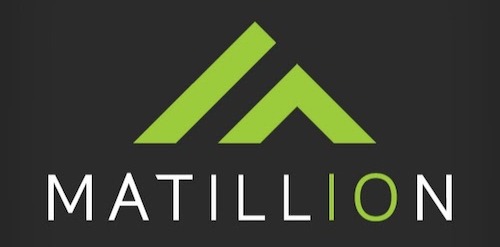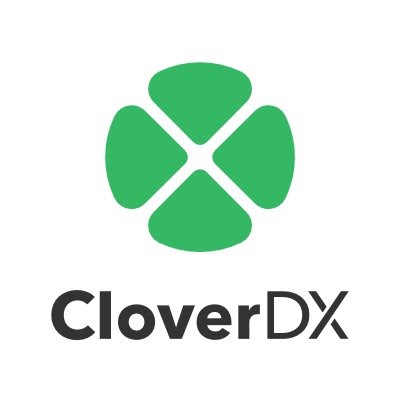The Best ETL Providers for 2020
ETL (extract, transfer, load) providers can make business intelligence more useful. Most businesses today collect vast amounts of information. In many cases, the information gets stored in various databases. Your marketing team may store information in one database while your sales team keeps its numbers elsewhere.
Having such a huge amount of data and so many database options creates some obvious problems.
- You can't understand what your data means until you analyze it.
- You can't analyze your data until you put it all in the same place.
ETL providers give you tools that should make it easy for you to combine information from multiple databases and generate reports that make sense to humans.
How Do ETL Providers Benefit Companies?
The benefits that you get from an ETL provider depends on which software you choose. In general, you can expect the best ETL providers for 2020 to give you the following benefits.
ETL Providers Make Your Data More Useful
Your business probably has multiple formats stored in several databases. No one coordinated every aspect of your data collection, so you have a hodgepodge system that barely works.
ETL providers solve these issues and make data more useful by:
- Converting files into the same format.
- Extracting the specific types of data that you need.
- Transforming that data to fit your needs.
- Loading the data that you need into a single source.
Most ETL providers will also give you visual representations of your data pipelines. Since many people can't interpret large amounts of data, visualizing the information makes it easier for non-tech employees to understand.
Have you ever gotten a confused look from your CEO after handing in a detailed report? That's because you think like an engineer. The data makes sense to you.
The CEO needs a visual representation. Actually, most people need graphs and charts. Pure data will mean nothing to them.
ETL Software Can Keep Your Data Clean
Your company will use different file formats over the years. ETL software can clean your data by reformatting old files to match your latest system.
As long as you keep updating your old files, you shouldn't lose access to them as technology evolves. Think of it as transferring VHS tapes to DVDs because you know that your VHS player will eventually die.
ETL Tools Improve Your Operational Resilience
Downtime kills businesses. Gartner once estimated that every minute of downtime costs about $5,600. The amount is probably even higher now.
A reliable ETL provider can improve your operational resilience by keeping your databases functional and secure.
Over time, corrupt files can make your database unreliable. ETL tools will remove the corrupt files so you can keep serving your clients without interruption.
ETL Software Generates Actionable Business Intelligence Reports
Today's businesses thrive on data. Without data, you cannot make informed decisions that will lead to more sales.
ETL tools pool your data, analyze the information, and generate reports that reveal trends. It's the key to business intelligence that keeps pushing your organization forward.
Get the Best Returns on Your Investments
You know that your business will invest in marketing, product development, customer outreach, and expanding into new territories.
You also know that each of those projects will cost quite a bit of money. Ideally, you get a strong return on your investment.
The best ETL providers for 2020 can give you business intelligence that helps you get the best ROI. By aggregating and analyzing data, you may discover that you need to:
- Put more money into digital marketing than traditional marketing.
- Focus on improving a specific part of your sales funnel so you convert more people into customers.
- Open a factory in Ohio instead of California.
- Hire more customer service agents to monitor your social media interactions.
Without data, you can only make business guesses. With data, you can make informed business decisions.
There are plenty of factors to consider before you adopt an ETL provider for 2020. Read on to get the information you need to select the best tool for your organization.
What Features Should You Look for in an ETL Provider?
Your business has unique data needs. With that said, you should look for an ETL provider that:
- Can connect information from multiple databases.
- Gives you a flexible, cloud-based solution.
- Follows security and compliance laws.
- Has an intuitive interface that doesn't require weeks of training.
- Offers the customization that you need to generate business intelligence reports quickly.
- Doesn't force you to buy a lot of additional hardware.
- Uses a graphical user interface (GUI) that represents your data pipelines and analytics.
- Has terrific customer service. Don't choose a cheaper ETL provider if it doesn't support its users well. Your data means too much to put into the hands of a company that doesn't care about you.
Do You Need an ETL Provider?
Not everyone needs an ETL provider. Yes, that's a controversial statement. Plenty of readers probably just yelled at their screens because they have seen the transformative power of ETL. If you run a very small company, though, you probably don't need an ETL provider. You can get most of the insights that you need for smaller tools that cost less money. You might even get all of the marketing data that you need from your website and social media accounts.
If you want your business to grow, though, you will need an ETL provider. You might not need it today because you run a website that only does $10,000 in sales per month. Some people are happy staying at that level. Most entrepreneurs and business managers don't want to settle, though. They want to grow their brands, convert buyers, and increase profits.
Assuming that you fall into the second, pro-growth category, you need an ETL provider.
The good news is that you probably don't need to spend a lot of money on ETL. As long as you choose an option that can scale with your business, you can keep prices reasonable. Below are the 10 best ETL providers for 2020.
The 10 Best ETL Providers for 2020
There are dozens of ETL providers that promise to help your business thrive in 2020. Some work better than others. In our experience, the following 10 ETL tools stand out as your best options.
Some of them cater to specific types of companies, though, so you need to read reviews before you decide which ETL tool matches your needs.
Xplenty
Pros:
- Clean drag-and-drop user interface that makes ETL easy for new users.
- Cloud platform lets you scale as your business grows.
- Integrates with most databases, data warehouses, and data lakes, including: Compose, BigQuery, Redshift, MongoDB, Snowflake, Salesforce, and Heroku Postgres.
- Reliable customer service and engineering success team.
- Visual reports that business leaders without tech experience can understand.
Cons:
- Using special characters in output fields can confuse the software.
- Error logs are difficult for non-developers to understand.
The Bottom Line: There's no denying that we have a soft spot for Xplenty. It's one of the most comprehensive ETL providers available. We love that it visualizes data pipelines and generates reports that practically anyone can understand. If you've ever had difficulty explaining a report to your CEO, Xplenty eliminates that issue. Also, the intuitive features make it easier for managers to use.
Improvado
Pros:
- Plenty of options for data visualization that will appeal to a variety of users.
- Lets you assign specific data points before generating reports.
- Moves large data sets quickly.
- Integrates multiple data sources.
Cons:
- Doesn't have as many out-of-the-box features as some competitors.
- Connections can get lost during large data transfers.
- Could offer more depth of granularity to make reports more specific and insightful.
The Bottom Line: Improvado stands out as a great option for companies that want actionable reports that make sense of data. Clients that encounter problems with the ETL software often say that Improvado provides solutions within hours. That suggests that the developers still have some work ahead of them before Improvado is the best ETL tool on the market. It also suggests, though, that the company works hard to keep its customers happy.
Talend
Pros:
- Intuitive user interface that helps companies adopt the tool quickly.
- Free version doesn't have an expiration, but you can't access all of the tool's features.
- Long list of components that you can add to the software to meet your company's or industry's needs.
Cons:
- You'll need to pay for features that your business needs most to succeed.
- Lacks the level of customer service that most ETL tools provide.
- Relies heavily on community support instead of customer service.
- Large data transfers can take a frustrating amount of time.
- You need to know some Java to get the most out of Talend.
The Bottom Line: We like Talend as a starter ETL tool. If you suspect that your small business could benefit from an ETL tool, but you don't want to invest much money on software, then you should try Talend's free version. The free option doesn't come with many tools, but it's good enough for you to learn about the advantages of ETL. If you really like Talend, you can pay for more features. Keep in mind, though, that the company doesn't get terrific customer service reviews because it mostly relies on a community of users to answer each others' questions.
Oracle Data Integrator
Pros:
- Integrates easily with other Oracle products.
- Can often integrate data from multiple sources without compatibility issues.
- Support team gives clear answers that help users succeed.
- Lightweight design helps Oracle Data Integrator move and analyze data quickly.
Cons:
- Although it has a graphical UI, Data Integrator's dashboard isn't as intuitive as competitor dashboards.
- Java bugs can cause unexpected crashes.
- Complex queries can generate perplexing reports.
The Bottom Line: Oracle has been developing software since the late 1970s, so the company has plenty of experience making products that work well. It's surprising, therefore, to see that Oracle Data Integrator (ODI) has so many Java bugs. Newer editions have solved many of the problems, but users still report unexpected crashes that can ruin hours of work. Unless you have a technical background, ODI isn't the right ETL tool for you. If you've been in the industry for a long time, though, you will have an easier time understanding the software and how to make it work for you.
Jaspersoft ETL
Pros:
- Open-source software that gives experienced developers tremendous control over ETL and other functions.
- Integrates with most databases.
- Makes it easy to combine data sets from multiple sources.
- Receives frequent updates.
- Generates actionable reports that make sense to business leaders and managers.
Cons:
- Created for developers, so it doesn't fit the needs of most marketing professionals and casual users.
- Lacks the customer support that today's users expect.
- Has a sterile interface that many users will find unappealing and difficult to use.
The Bottom Line: The cons make Jaspersoft ETL sound like a terrible option. Really, it's a powerful ETL tool that beats competitors in many ways. It's difficult to recommend Jaspersoft ETL to most people, though, because it requires a deep understanding of databases, Java, and other technical features. If you have experience as a developer, then you will probably love this open-source ETL tool. If you want basic software that does all of the work for you, Jaspersoft ETL is not a good choice.
Informatica PowerCenter
Pros:
- Works with AWS and Azure.
- Integrates with most database systems and apps.
- Keeps pricing affordable by letting you choose the features you need.
- Intuitive dashboard helps create a fast learning curve for new employees.
- Extremely fast compared to many other ETL providers.
Cons:
- Large projects can require multiple windows that distract users.
- Requires a lot of free memory to transfer and evaluate data quickly.
- Designed for large jobs rather than small ETL tasks.
- Doesn't have an option for MacOS.
The Bottom Line: Informatica PowerCenter has a lot going for it. It could also use plenty of improvements. We like that it integrates with most databases, has an intuitive dashboard, and works at lightning speeds. On the other hand, the software is bulky. You'll probably need to purchase new hardware to run PowerCenter. Also, we don't understand why Informatica hasn't made a PowerCenter version for MacOS. The incompatibility means that your business has to use the same operating system on all of its computers. Even worse, you may not be able to collaborate with vendors outside of your company.
Sisense
Pros:
- Available plug-ins make it relatively easy to customize Sisense's features.
- Fast, accurate customer services.
- Web-based platforms make database integrations a breeze.
- Combines data from different sources without issues.
Cons:
- You'll only get the most out of Sisense if you know JavaScript.
- Can require a lot of server space for complex ETL projects.
- Reports aren't as visually appealing as those from most ETL tools.
- Sometimes fails when using advanced SQL.
The Bottom Line: You get inconsistent reviews from Sisense users. Some people love Sisense because it lets them customize and build new features. Others dislike the ETL tool because they find it buggy and slow. The difference largely depends on how much JavaScript and SQL experience you have. If you're an experienced developer that likes to customize tools, then you will probably enjoy Sisense. Otherwise, you will probably find Sisense more frustrating than helpful.
Matillion
Pros:
- Simple, straight-forward UI that beginners will love.
- Integrates well with most databases, including those from AWS and Google.
- Can combine data from multiple sources.
- Drag-and-drop features Matillion great for beginning and advanced users.
Cons:
- Large ETL jobs can take a long time to finish, likely because Matillion lacks cluster abilities.
- Out-of-memory (OOM) errors can make big jobs painful.
- Some users report that Matillion disconnects from servers without obvious reasons.
The Bottom Line: Here is a wonderful ETL tool for people who don't know a lot about technology. The drag-and-drop interface makes it so simple for beginners to transfer data and generate reports. If you're a beginner, you should consider using Matillion. We have a less-enthusiastic recommendation for seasoned developers, though. You may find the tool frustrating when you get OOM errors and server disconnections. Also, you may have difficulty using it to add information to non-Amazon databases. Extracting data is easy, but adding data often means running into multiple errors.
CloverDX Data Integration Program
Pros:
- Does a great job handling information from multiple databases.
- Plenty of options to customize the software for the types of projects you manage.
- Clover training courses help teach users how to take advantage of all ETL features.
- Can process large data sets very quickly.
Cons:
- You can't get the most out of CloverDX Data Integration Program unless you get server space.
- Despite strong training courses, it takes a while to learn how to use the tool.
- Doesn't cooperate with all types of files, such as Word and PDF documents.
The Bottom Line: If you're willing to put in the time that it takes to learn CloverDX Data Integration Program, then it will serve you well. It does have a long learning curve, though, so keep that in mind before you make any commitments. With that said, the software does a great job combining information from multiple databases; it works quickly; and it gives you a ton of customization options. For the speediest transfers, you will need server space. Find out how much the server space will cost so you know whether the total price fits your budget.
Sybase ETL
Pros:
- Extremely fast tool that can aggregate billions of data rows in seconds.
- The cloud-based app makes scaling easy.
- Doesn't require as much free memory as you would expect for such a fast app.
Cons:
- Installing and setting up Sybase ETL takes time and often feels frustrating.
- The pricing schedule may appeal to some, but it also creates unnecessary complications.
- The SQL drivers are a bit buggy, which can lead to dropped connections.
The Bottom Line: Sybase ETL has some flaws that make it pretty undesirable for small companies. Unless you have a real pro on your team, this ETL provider could make it difficult to find information and generate reports. On the flip-side, Sybase ETL works at an insanely fast speed that enterprise organizations need. Consider adopting it if you have a team of professionals familiar with the technology. Otherwise, you should choose software with a more intuitive design.
Conclusion- What ETL Providers Offer the Most Comprehensive Tools?
Most ETL providers strive to give their customers comprehensive tools. The reviews above give you a lot of information about the features that each product offers.
When it comes to comprehensive solutions, though, we love Xplenty, Jaspersoft ETL, and CloverDC Data Integration Program. These apps tend to work well with multiple databases and file formats. They also have strong data processing, visualization, and report generation features.
ETL will keep playing a significant role in business success well beyond 2020. By finding the right service now, you can prepare for changes in the future. The sooner you embrace ETL technology, the sooner you can move ahead of your competitors.






